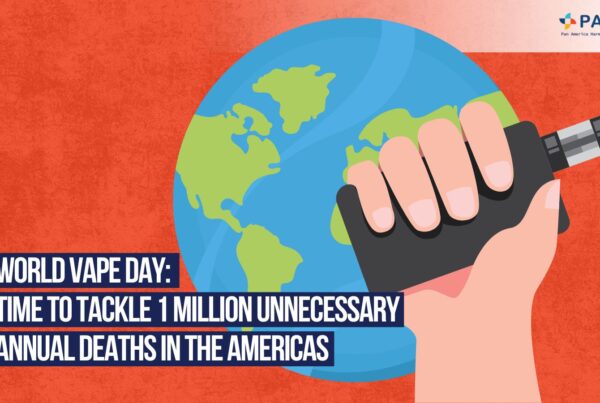The Pan American Region Needs To Act
One of the main problems affecting the Pan American region is the use of combustible tobacco and the very restrictive regulation of less harmful alternatives, with widespread bans in some countries and excessive taxation in others.
Switching to less harmful products and/or quitting tobacco altogether can save hundreds of millions of lives.
In Argentina, Antigua, Barbuda, Brazil, Colombia, Nicaragua, Panama, Suriname, Uruguay and Venezuela, e-cigarettes are entirely banned.
In Chile, e-cigarettes are only available by prescription from a GP.
In the United States some cities like San Francisco have banned the sale of e-cigarettes, while entire states have banned flavoured e-liquids
Adult smokers deserve access to reliable, accurate information about reduced-risk products.
Modelling shows that progressive vaping policies can help:
6.4 million smokers quit in the United States of America
5.6 million smokers quit in Brazil
3.4 million smokers quit in Mexico
1.7 million smokers quit in Chile
THR regulation principles
THR regulation should aim to maximise the number of smokers switching to safer, smoke-free products;
Public health strategies should focus on addressing misperceptions that hamper adult smokers from adoption of potentially harm reducing smoke-free products;
It should also strike the balance between ensuring that nicotine products remain accessible and as safe as possible without compromising their appeal to smokers.
THR product regulation should be:

Science-based

Proportionate to the degree of risk to the consumer

Based on applying the most restrictive regulations to the most harmful product (i.e. cigarettes)

Based on applying the least restrictive regulations for the least harmful products

Protect youth from initiation
The UK has the most advanced THR regulation in the world and is a leading case study for how nicotine products can be used to reduce smoking rates.





